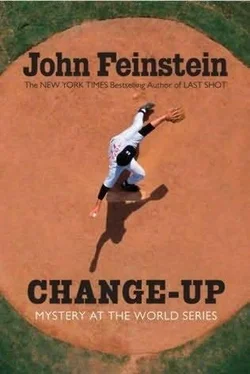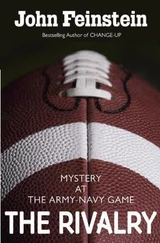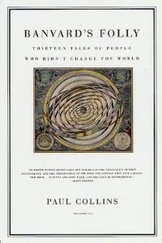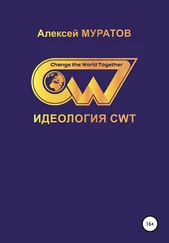Nieves smiled, then shook his head. “I probably know him as well as anybody. But that’s not saying much.”
That got Stevie’s attention. The four reporters all stayed quiet, waiting for Nieves to continue. Stevie was thankful there were no TV people around, because undoubtedly one of them would have plowed through the brief silence and asked something lame.
Seeing that no one was saying anything, Nieves shrugged. “Look, I’m not saying Norbert’s not a good guy. He’s a really good guy. Just quiet, very quiet.”
Stinson followed up: “Is he shy?” he asked.
Nieves thought for a moment. “I wouldn’t say shy,” he said. “He always seems to have a lot on his mind. He’s friendly, I’m sure you guys have talked to him. But for the most part, he keeps to himself. I just always thought he was, well, kind of sad, to be honest.
“Maybe it’s raising two kids by himself, that can’t be easy. Tonight when we got in here, before they let you guys in, everyone was pounding him on the back because he pitched such an amazing game, and he just kind of smiled, said thank you, and asked John Dever when he had to go to the interview room. That’s the way he’s been as long as I’ve known him. Joy doesn’t seem to be his thing.”
Stevie had been right about Nieves. He was clearly very perceptive and very honest-surprisingly honest, especially in a locker room situation. Stinson started to ask another question, but all of a sudden Stevie saw a microphone pop up in Nieves’s face and noticed a cameraman sticking his lens right over his shoulder.
“Wil, you guys have to be thrilled to go back to Washington tied at one game all,” the guy with the microphone said, asking an answer, something Stevie had gotten used to seeing TV people do a lot.
Nieves looked startled by the interruption, but he politely answered the question. The guy started to ask another question. Apparently, that was enough for Stinson.
“Hold it,” he said. “Wil was talking to the four of us, and you just barge in here and interrupt. You need to wait until we’re done, which will be about another minute.”
He didn’t shout, but his tone was firm.
“Hey, pal, I’m on deadline here,” the TV guy said.
“Just like everyone else,” Stinson said.
The TV guy turned from Stinson and asked another question. This time Nieves didn’t have a chance to answer because Stinson put his hand right over the microphone and stepped in front of Nieves.
“Your choice,” he said to the TV guy. “Wait sixty seconds, or we can stand here and both blow deadline.”
The TV guy started screaming profanities at Stinson and tried to grab the microphone back from him. Stevie saw the cameraman start to reach toward Stinson with his free hand. Without thinking, Stevie blocked the guy’s arm, throwing him off balance.
“Hey, what the hell do you think you’re doing?” the camera guy said, stumbling backward and almost dropping his camera.
Before Stevie could answer, Stan Kasten, the president of the Nationals, whom Stevie had noticed walking around the clubhouse when he came in, materialized, stepping between Stevie and the camera guy.
“Hey, fellas, you aren’t supposed to fight each other, you’re supposed to fight guys like me,” Kasten said, smiling. “Let’s all get along here.”
The TV guy was yelling at Kasten about Stinson’s not letting him do his job. Kasten had been the president of the Braves for almost twenty years and apparently knew Stinson. “Tell me in ten seconds or less what happened, Tommy,” he said.
“Sure,” Stinson said. “The four of us were talking to Wil, and this guy barged in, stuck the microphone in Wil’s face, and went off on a tangent that had nothing to do with what we were talking about.”
“Free country,” the TV guy said.
“He’s right, Stan,” Nieves said, much to Stevie’s surprise. He had watched the scuffle with a bemused smile on his face. “These guys were almost done when he interrupted.”
“ Norman,” Kasten said to the TV guy, “when these guys are done, I will personally escort you back over here to talk to Wil.”
Stevie noticed that everything in the clubhouse had stopped so people could watch what was going on. In fact, he noticed several TV cameras rolling on the scene.
“But-”
“It’s that or nothing,” Kasten said. “Your call.”
The TV guy slunk away. As he turned to follow, the cameraman said to Stevie, “I’ll find you later.”
“Oh please,” Stevie said, even though a chill went through him. “What’re you going to do, hit me with your camera?”
He turned back to Nieves only to find that the circle had now grown, with others wanting to hear Nieves’s version of what had just happened. Stinson was standing next to him. “Well, I guess that takes care of getting anything more from him tonight,” he said. “You can’t win. You don’t say anything, you lose the flow of the interview completely. You do say something, you lose the interview anyway.” He put out his hand: “We haven’t met. Tom Stinson from Atlanta. Thanks for helping me out there.”
“Steve Thomas,” Stevie answered. “I’m sorry the guy interrupted. That was pretty good stuff.”
“Yeah,” Stinson said. “Worth following up on. Well, gotta run. I’ve got about twelve minutes to write before deadline. See ya later.”
Stevie looked at his watch. It was almost midnight. He had more than twelve minutes, but he needed to get going too.
He ran into Arnold leaving the clubhouse. “How’d you do with Nieves before the scuffle?” Arnold asked.
“Pretty good. I’d like to talk to him again without being interrupted.”
Arnold laughed. “Good luck with that,” he said. “Come on, we need to get moving.”
Stevie followed him to the elevator, wondering about Nieves’s final comment: “Joy doesn’t seem to be his thing.” The Norbert Doyle he’d had breakfast with had certainly seemed cheerful to him-except when the subject of his wife’s death came up. But there was the whole Susan Carol-David secret, whatever that was. There was a story here, Stevie knew that for sure. Unfortunately, he had no idea what the story was.
STEVIE WANTED TO SHARE what Wil Nieves had said with Bobby Kelleher, but there was no time. Everyone was fighting deadline when he got back upstairs. Then in the cab back to the hotel, he didn’t want to say anything with Susan Carol sitting there.
He left the personal quotes about Doyle out of his story because they didn’t really fit with what his sidebar was about: Nieves’s view of how Doyle had managed to baffle the Red Sox so completely. He knew that Tom Stinson and the other two writers who had been standing there might well use the quotes, but he was thinking long-term: he wanted to consult with Kelleher when he got the chance and then follow up.
Normally, the person he would have talked to first in this sort of situation was Susan Carol. That, however, was not an option, in part because they were working for different newspapers, but more because they weren’t speaking to each other very much.
The next morning the four of them took the short cab ride back to Logan Airport. The series, and everyone in it or covering it, was on its way to Washington. Stevie spent most of the flight trying to catch up on some reading for his English class and trying briefly to work on some algebra, but the math might as well have been written in Chinese, so he gave up fairly quickly. It was a beautiful day, and the plane flew straight down the Potomac River, past all the monuments as it landed.
“Pretty spectacular,” he said to Tamara, who was sitting next to him.
“On a day like this, landing here is actually fun,” she said. “In bad weather, though, it’s not fun at all because the runways are so short.”
Читать дальше












